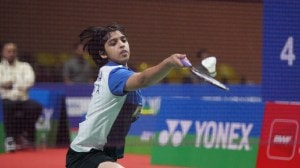Nine get life term, three given RI for Pandya murder
Observing that Haren Pandya’s murder was not the “rarest of rare cases” justifying death penalty, designated POTA court judge Sonia Gokani

Observing that Haren Pandya’s murder was not the “rarest of rare cases” justifying death penalty, designated POTA court judge Sonia Gokani today awarded life imprisonment to nine of the 12 accused in the killing of the BJP leader in March 2003.
Two accused were sentenced to seven years’ rigorous imprisonment while one was given five years’ RI. Three people were exonerated by the POTA Review Committee and the matter is pending before the Supreme Court.
Of the total 19 accused in the case, four are still absconding and are believed to be in Pakistan. The CBI, which investigated the murder of the former Gujarat Home Minister while on his routine morning walk, concluded that the conspiracy had been hatched in the neighbouring country.
The much-awaited verdict, which came four years after the chargesheet was filed in August 2003, was delivered at Sabarmati Jail amid tight security.
Special Public Prosecutor J M Panchal had pleaded for death sentence to three accused, including Asgar Ali, who the police say shot Pandya. According to Panchal, the case fell under the category of “rarest of the rare” and “exceptional” and therefore the maximum punishment, including death penalty, needed to be imposed on the accused. He had submitted that the rest of the accused should be awarded life imprisonment for whole life.
According to the CBI, the murder was part of a larger conspiracy to kill political leaders to avenge the killing of Muslims during the 2002 riots in the state.
The public prosecutor said the tiffin bomb blasts on buses, training of Ahmedabad youths in Pakistan and the attack on VHP leader Jagdish Tiwari were all part of this conspiracy.
He also submitted that the whole operation had been plotted in Pakistan, along with Ahmedabad and Hyderabad.
Panchal had submitted that Tiwari and Pandya had been targeted despite the fact that the two had caused no harm to the accused.
He also argued that the attacks were not carried out at the “spur of the moment” but were the result of meticulous and calculated planning.






- 01
- 02
- 03
- 04
- 05

























